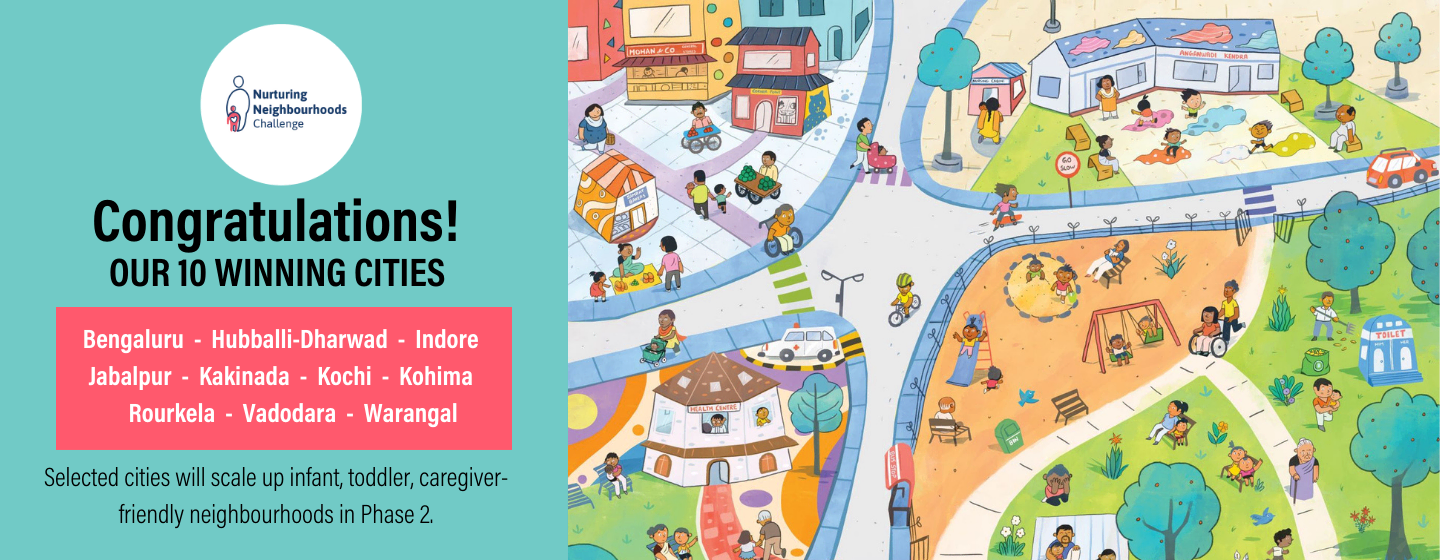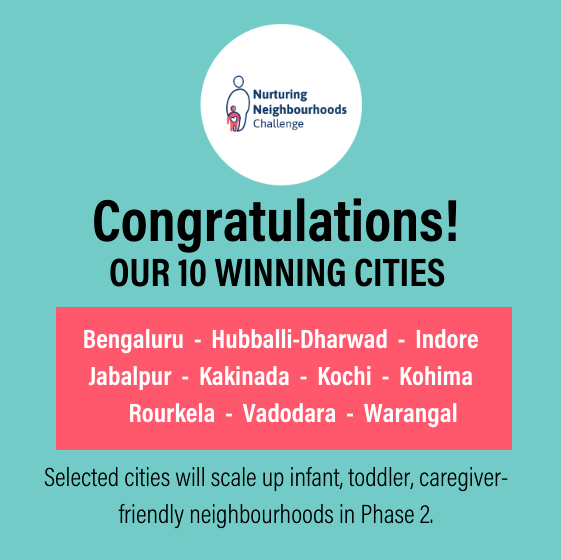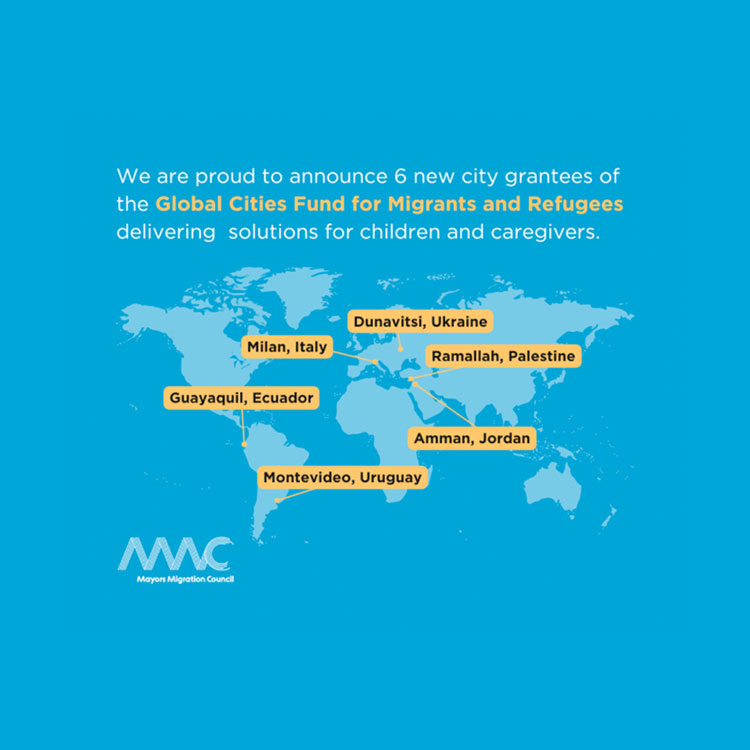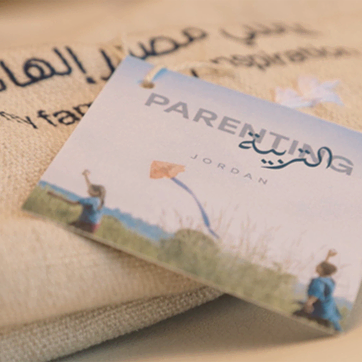The 10 winning cities of the Nurturing Neighbourhoods Challenge in India were announced on Monday 17 January from a first cohort of 25 cities, previously chosen from over 60 applicants. The first cohort of cities have already been actively implementing practical ideas to improve urban life for infants, toddlers and caregivers, and the 10 winners will receive additional support for scaling up.

“Changes led by the Nurturing Neighbourhoods Challenge cohort are transforming how we plan, design and manage Indian cities to be healthier, more inclusive places for young children, which consequently enhances life for all,” said Shri Manoj Joshi, Secretary of the Ministry of Housing and Urban Affairs at the announcement.
Kunal Kumar, Joint Secretary and Mission Director of the Smart Cities Mission, added: “Because of this challenge, we now understand better that access to a safe, supportive public realm during the critical early years of a child’s life is essentially linked with strong long-term social, economic, and developmental outcomes.”
Attendees were also addressed by Cecilia Vaca Jones, Executive Director of the Bernard van Leer Foundation, and Rushda Majeed, the Foundation’s Country Representative for India. The event was covered in media outlets including The CSR Journal and India Education Diary.
As described in the publication Stories from the Field: Highlights of achievements by cities from cohort stage March to October 2021, the 25 cities implemented activities including:
- reclaiming public spaces for play;
- making it easier to perform caregiving activities in public spaces;
- ensuring that public spaces are inclusive of the most vulnerable;
- refurbishing amenities in anganwadis and other locations providing services to families;
- creating safer walking experiences for caregivers, babies and toddlers, including through connections with public transport;
- enhancing opportunities for young children to connect with nature; and
- engaging communities to ensure that interventions are sustained.
Winning cities
Below are the 10 winning cities, in alphabetical order, with examples of the initiatives they have been implementing as part of the challenge:
Bengalaru
A new play space for young children at an anganwadi, and converting a small brownfield space into an area for caregivers and children.

Hubballi-Dharwad
A priority queueing and pram-share system at a busy bus interchange, along with floor-based play installations in bus waiting areas.

Indore
A neighbourhood garden for nature-based play, a new park with a sensory trail, refurbishing a play space and installing basic sanitation infrastructure at an anganwadi, and engaging the community to tidy the space around another anganwadi.

Jabalpur
Incorporating a play space into a Covid-19 vaccination centre, a sensory trail and nature-based areas in an existing park, a space for breastfeeding at a busy bus exchange, and engaging the community to transform a derelict park.

Kakinada
Transforming an abandoned space into a play area, creating a dedicated area for toddlers in a park, and pedestrianising a plaza for use by families.

Kochi
Creating a shaded waiting area and play spaces at anganwadis, including by converting a former car park, and engaging the community to transform the use of a park which had become host to anti-social activities.

Kohima
Opening up a nature-based play space in a school to the wider community after school hours, creating a play space between a bus stop and an anganwadi, and engaging the community to create a mini-park on the site of a dumping ground.

Rourkela
Breastfeeding facilities in public parks and markets, two model anganwadis with outdoor play spaces, a play space inclusive of children of leprosy-affected people, covering open drains on a walking route to a primary health centre, creating a shaded pedestrianised area alongside a busy road, and engaging women’s groups to create a new play space in an urban slum.

Vadodara
Bringing pop-up play opportunities to areas without play spaces through a mobile play van, and transforming an unused area under a flyover into a play space.

Vadodara
Warangal
Traffic calming measures and covering open drains around an anganwadi, creating a safe crossing and pedestrianised play area at a busy junction, and turning a dumping ground into a pet-friendly park.

“The Challenge was the first of its kind in the country to focus on the needs of young children and their families at a neighbourhood scale,” said Rushda Majeed. “Cities, urban and early childhood experts, and citizens alike appreciated the focus on improving the urban experiences of young children and caregivers, and ultimately all residents. The 10 winning cities will now focus on implementing and scaling up interventions.”




